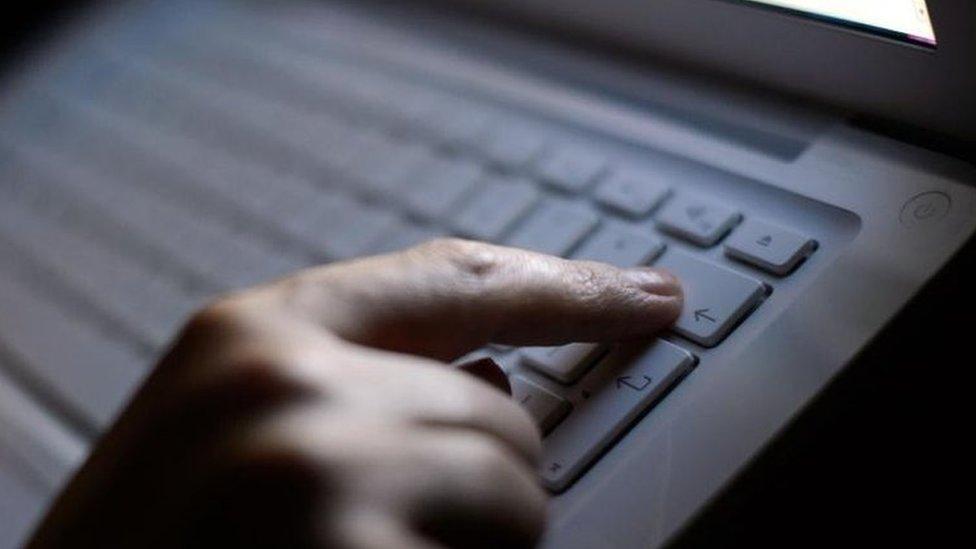Hacker warned he faces jail after admitting cyber crimes
- Published

Alex Bessell was arrested after an investigation by West Midlands Police
A computer hacker has admitted a series of cyber crimes, including attacks on Google, Skype and other companies.
Alex Bessell from Liverpool, admitted nine offences, including receiving £50,000 from proceeds of a website he set up to sell malware and botnets.
The 21-year-old's crimes also included gaining unauthorised access to data with intent to facilitate fraud by obtaining 750 usernames and passwords.
The Birmingham Crown Court judge warned he could face a jail sentence.
Judge Roderick Henderson granted Bessell bail until he is sentenced on 5 January.
"You've faced-up to what you have done, though it's no guarantee how a judge will deal with you next time," he said.
"Don't think because of me giving you bail, however, it is a done deal.
"That judge may decide you need to go to prison for this - but it's entirely up to them."
Midlands Live: Body of 92-year-old found in house fire; Santa's grotto 'smashed and stolen'
The nine offences included carrying out two distributed denial of service attacks between August 2011 and November 2013, by taking over computers in order to crash the targets' online operations.
He also pleaded guilty to conspiring with others to build the Galaxy JDB hacking tool, and supplying it to others for use.
Bessell admitted entering into a money-laundering agreement between 2012 and 2013, knowing it would facilitate the gain of criminal property.
He was arrested in September following an investigation by West Midlands Police.
Hannah Sidaway, from the Crown Prosecution Service, said Bessell's arrest followed a long and complex police operation, spanning several countries.
"Bessell was responsible for the creation, use and distribution of computer malware from 2010 onwards - during which time law enforcement have seen this type of criminality grow at a phenomenal rate," she said.
"His actions enabled others across the world to commit thousands of criminal attacks."
- Published30 October 2017
